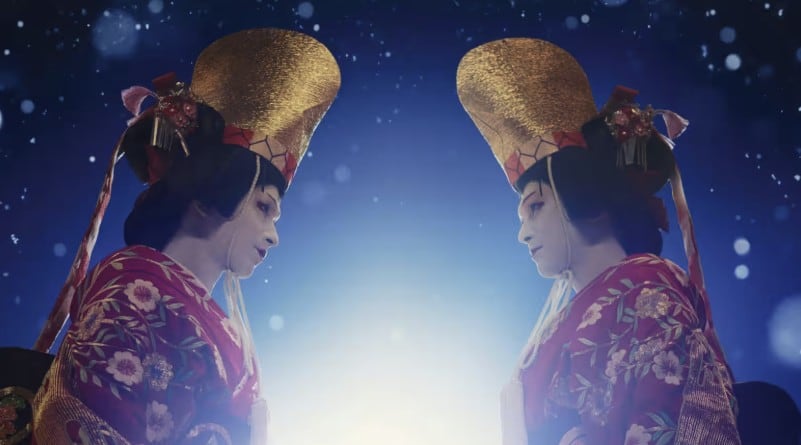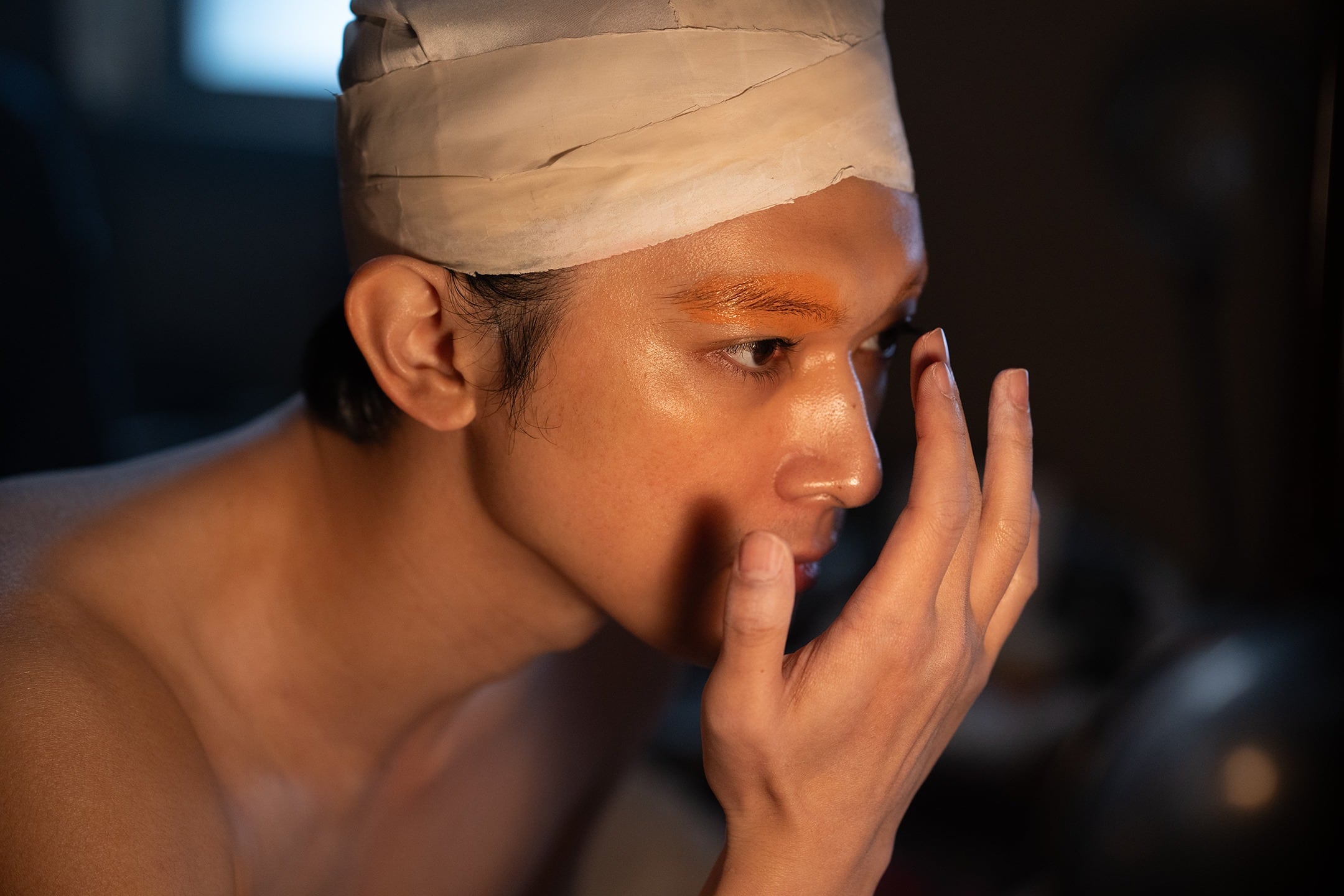Judul : Japan’s Oscar Contender ‘Kokuho’ Surpasses 10 Million Viewers
link : Japan’s Oscar Contender ‘Kokuho’ Surpasses 10 Million Viewers
Japan’s Oscar Contender ‘Kokuho’ Surpasses 10 Million Viewers
Hello, this is Shin Jeong-sun, a reporter from the Culture Department of Chosun Ilbo. The 154th edition of ‘That Movie, How About It?’ focuses on the film ‘Kokuho’, which recently surpassed 10 million viewers in Japan. Directed by Lee Sang-il, a third-generation Korean-Japanese filmmaker, the movie premiered domestically at the Busan International Film Festival. I rushed to see it immediately. Japan has submitted ‘Kokuho’ as its Japanese candidate for the International Feature Film category at the 98th Academy Awards next year. The South Korean candidate is Director Park Chan-wook’s ‘No Other Choice’. ‘Kokuho’ was invited to the Directors’ Fortnight at Cannes, while ‘No Other Choice’ was selected for the Venice Film Festival’s main competition. This is no small rivalry.
The runtime of ‘Kokuho’ is a staggering 175 minutes, 3 hours. Before the screening, my thought was: “How will I endure 3 hours?” After the screening: “When did 3 hours pass?” Yes, there’s a reason it became a 10-million-viewer hit. I’ll save the detailed review for when it opens domestically in the second half of the year. In this letter, I’ll focus on the core elements of what ‘Kokuho’ is about.

The protagonist of ‘Kokuho’ is a Kabuki actor. A man who sold his soul to become the greatest actor. Upon hearing “Kabuki,” you might think, “I don’t know Kabuki, and I’m not interested.” But you don’t need to. The film does show several Kabuki performances. However, it’s not about Kabuki—it’s about humans. The rivalry between a man born with talent and one born with bloodline. Which does the god of art favor more?
The fact that the protagonist is a Kabuki actor, not a film or drama actor, is significant. First, Kabuki operates on a hereditary system, meaning even exceptional talent can be rendered useless before the unassailable status of someone born into a Kabuki family. As seen with the protagonist of ‘Kokuho’. (There’s even a scene where the protagonist shouts at the Kabuki heir, “Hey, you silver-spoon brat!”) Another point: as a stage actor, not a film or drama actor, he must deliver every time. Unlike film or drama, there’s no camera magic or editing to hide or enhance flaws. Every performance is a cliffhanger.
Kikuo (Yoshizawa Ryo), the protagonist of ‘Kokuho’, is the son of a yakuza boss. From a young age, he overflowed with talent. He even performed on a makeshift stage at a family New Year’s gathering. His father’s expression suggests disapproval, but this remains unconfirmed because, in the opening scene, the father is killed by rival yakuza forces—right in front of his son. In a snowy winter garden.
A man who immediately recognized Kikuo’s talent at the New Year’s gathering was Hanjirou (Watanabe Ken), a Kabuki actor. Hanjirou takes Kikuo as his apprentice, but he also has a son, Shunsuke, who naturally aspires to be a Kabuki actor. As you might guess, Kikuo surpasses Shunsuke with his innate talent. He’s just that good. But so what? Shunsuke is the silver-spoon heir of a Kabuki family. The system is designed to ensure Shunsuke’s dominance.
For example, there’s a scene where both stand on stage together, and Hanjirou encourages them individually. To Shunsuke, he says: “You’ll do well. You’re bound to. Because you’re my son, because the blood of our family flows in you. That blood will protect you.” His eyes beam with encouragement. Then, to Kikuo: “Well, you practiced hard, didn’t you? You never took a day off. Your body must remember the movements.” Ah, without bloodline, you must rely on your body.
Everyone knows Kikuo overwhelmingly outperforms Shunsuke. Hanjirou knows it, Shunsuke knows it, even Hanjirou’s wife, who dotes on her son, knows it, as do the biggest patrons. It’s obvious to anyone who watches. But that cursed blood—no matter how much you desire it or strive for it, you can’t have it. Before that blood, Kikuo falters. Later, he even tells Shunsuke: “I want to drink your blood.” The bloodline narrative is also a reflection of Director Lee Sang-il’s own story. As a Korean-Japanese living in Japan, he must have his own unique perspective.

Shunsuke, born with that blood, but is that blood truly only a blessing? The film chronicles Kikuo’s brief success—thought to be chosen by Hanjirou over Shunsuke—and his inevitable setbacks, struggles, and eventual triumph, in chronological order. It’s very accessible and kind. This starts with its structure: there are no typical flashbacks or complex formal devices a director might use to “show off.” The formal beauty comes from Kabuki itself. Onstage, within a prearranged framework between actor and audience, there’s tension, excitement, anticipation, and trembling as they create a world beyond. (One performance left me marveling, “How much training does it take to do that?”) As you watch, you might think, “This story feels familiar, like a setup I’ve seen before.” That familiarity guides you comfortably through the 3-hour runtime.
Watching Kikuo and Shunsuke’s Kabuki performances indirectly in the film makes me reconsider the path of an actor, the path of art. There are moments where you wonder, “What is it about acting? What is art?” Early in the film, there’s an elderly actor playing Mankiku, the “Human National Treasure,” played by Min Tanaka from the 2023 domestic release ‘The Unnameable Dance’. In real life, he’s a highly respected modern dancer. Watching this grandfather dance feels like witnessing someone from another world. (Ah, I regret missing the chance to interview him back then. I should have gone to Daegu even for half a day!) The child actor who played young Kikuo is Kurokawa Soyah, the lead in Kore-eda Hirokazu’s ‘Monster’. I thought he was good in ‘Monster’, and he’s just as impressive in ‘Kokuho’. I felt proud, as if he were an actor I’d raised.
As children, Kikuo and Shunsuke watch Mankiku’s performance in awe and exclaim: “It’s surreal. That’s a monster.” “Yes, a beautiful monster.” ‘Kokuho’ is also about the pitiful tears of humans writhing to become ‘beautiful monsters’.
The film also contains a mystery. Kikuo is obsessed with a certain image throughout his life, constantly wondering what it is. The answer lies within the movie, so I’ll leave it to you to solve. I suspect the answer might align with the “electricity” mentioned in the film ‘Billy Elliot’. ‘Kokuho’ will open domestically in the second half of the year. I’ll explain in detail in a future “That Movie, How About It?” letter why Kikuo’s answer and Billy Elliot’s electricity resonate. Until then, I’ll see you in the next letter. Thank you.
Chosun.com ‘That Movie, How About It?’ subscription link https://www.chosun.com/tag/cinema-review
Naver ‘That Movie, How About It?’ subscription link https://naver.me/FZ82SAP3
Demikianlah Artikel Japan’s Oscar Contender ‘Kokuho’ Surpasses 10 Million Viewers
Anda sekarang membaca artikel Japan’s Oscar Contender ‘Kokuho’ Surpasses 10 Million Viewers dengan alamat link https://www.angkaraja.cfd/2025/10/japans-oscar-contender-kokuho-surpasses.html
0 Response to "Japan’s Oscar Contender ‘Kokuho’ Surpasses 10 Million Viewers"
Post a Comment